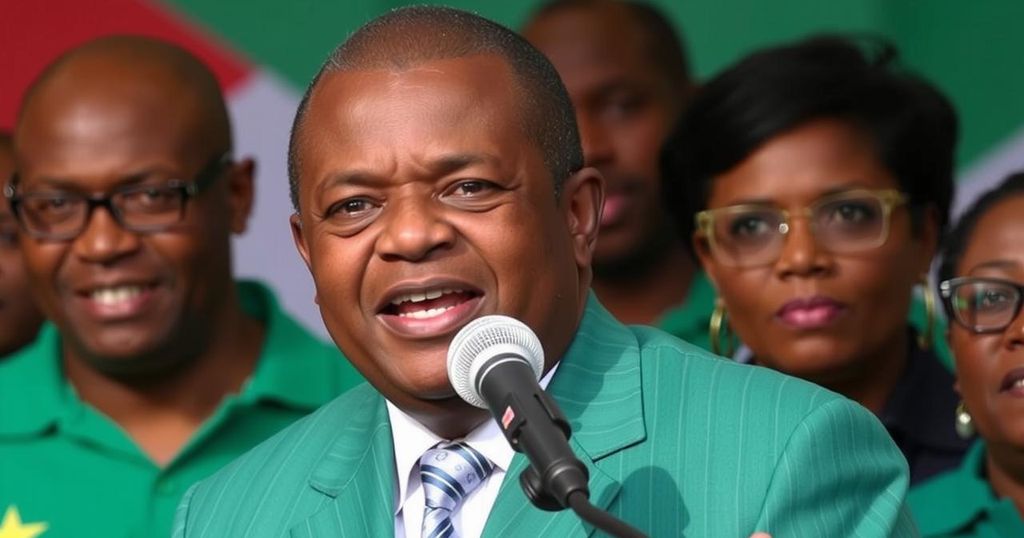Mozambique’s Supreme Court Confirms Frelimo Party’s Election Victory Amid Anguish
Mozambique’s top court validated the ruling Frelimo party’s election win, amidst accusations of rigging and subsequent public outcry. The revised results indicate a 65 percent victory for Daniel Chapo, with opposition leader Venancio Mondlane contesting the legitimacy of the election. This confirmation has sparked fears of potential violence as the nation faces escalating tensions following months of unrest, with international calls for peace becoming increasingly urgent.
The Constitutional Court of Mozambique has confirmed the ruling Frelimo party’s victory in the contentious October elections, igniting fears of escalating violence following weeks of unrest. Presidential candidate Daniel Chapo was declared the winner with a revised 65 percent of the vote, a significant reduction from earlier provisional results that showed nearly 71 percent. His adversary, Venancio Mondlane, received 24.2 percent after a revision, asserting that the elections were rigged. The United States called for calm, urging collaboration to restore peace amidst a backdrop of violence that has left over 130 individuals dead. Chapo, heralded as the successor to outgoing President Filipe Nyusi, promised to engage with Mondlane in pursuit of national development. In contrast, the opposition leader vowed to continue advocating for electoral integrity and hinted at mobilizing supporters against Frelimo. The ongoing unrest, characterized by protests and clashes with security forces, has significantly affected the nation’s stability, impacting key infrastructures and resulting in widespread apprehension within the populace. Despite Chapo’s conciliatory approach, analysts predict that continued discontent could lead to intensified violence if demands for electoral transparency remain unmet.
In a country already strained by economic challenges and inequality, the elections have exacerbated divisions, with many citizens demanding accountability from the government. As Mozambique stands at a precarious juncture, the international community watches closely, calling for dialogue and reconciliation to avert further violence and displacement. Moreover, with Mondlane appealing to a young electorate frustrated by poverty notwithstanding the country’s resource richness, the potential for upheaval remains high, mirroring historical patterns seen in other nations experiencing similar socio-political unrest.
Mozambique has a tumultuous political history, marked by civil unrest and instability. The recent elections, which took place on October 9, 2023, were marred by allegations of fraud and violent clashes, illustrating deep schisms within the society. These events have prompted both domestic and international calls for accountability and transparent governance. The ruling Frelimo party has maintained power for over fifty years, often leading to significant opposition movements advocating for change. The response to this election, particularly from opposition leaders like Venancio Mondlane, encapsulates broader frustrations among the citizens, many of whom live in poverty despite Mozambique’s abundant natural resources. The situation remains fluid, with international observers and local groups closely monitoring developments.
The confirmation of Frelimo’s electoral victory by Mozambique’s highest court has intensified fears of violence in the region, particularly following the opposition’s threats of upheaval. As allegations of election fraud persist, the potential for significant civil unrest looms, especially among youth disillusioned by poverty. While Chapo’s initial calls for unity may offer a glimmer of hope, the reality on the ground indicates a volatile situation with a desperate need for reconciliation and transparency in governance. The path forward for Mozambique remains uncertain as both domestic and international stakeholders strive to navigate this crisis peacefully.
Original Source: www.wfxg.com




Post Comment